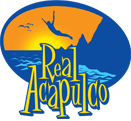Today is Poinsettia Day in Taxco

(Taxco, JG 8 December) Poinsettias are native to Mexico, where they go by the Spanish name “Nochebuena” (meaning “Christmas Eve”) or by the Nahuatl name Cuetlaxochitl (“kwet-lots-o-CHEAT-li,” which means “plant with leathery leaves”). Cuetlaxochitl has become a common girl’s name in indigenous culture. The name “Poinsettia” was given the flower in the U.S. in honor of Ambassador Poinsett, who, on Christmas Eve of 1825, visited Taxco’s Santa Prisca church and first encountered the plants with the fiery red leaves.
In December poinsettias are abundant all over Mexico. Taxco, the historic mountain mining town in Guerrero where Ambassador Poinsett first learned about the plant, has embraced the Poinsettia as the plant’s home town, and has organized a festival around it. Today will be the second annual observance. The city fathers are hoping that the day will be observed nationwide as part of the pre-Christmas season and that UNESCO will recognize the plant as part of the intangible patrimony of mankind. Last month, UNESCO made such a declaration concerning Mexican cuisine, motivating those who promote other aspects of Mexican tradition and culture. In Roman Catholic tradition, December 8 is celebrated as the Feast of the Immaculate Conception of the Blessed Virgin Mary, which is perhaps a helpful association for the “Christmas flower.”
Today’s celebration is called “A Mosaic Through Time.” The official declaration of the town council recites, in part: “By virtue of the fact that the Cuetlaxochitl is a flower indigenous to this region and a symbol of Christmas, the Municipal Council unanimously has instituted this day.” Activities included a photographic exposition and contest, and the release of a CD of music in honor of the flower. Taxco is the home of the first native plant germplasm bank for the Poinsettia. Taxco has the honor of being the location for the announcement of the most recent variety of Poinsettia, a white-leaved plant named “Tlachco.” This was the pre-Hispanic name from which “Taxco” was derived. It means “place for playing pelota” (the Aztecan ball game).

